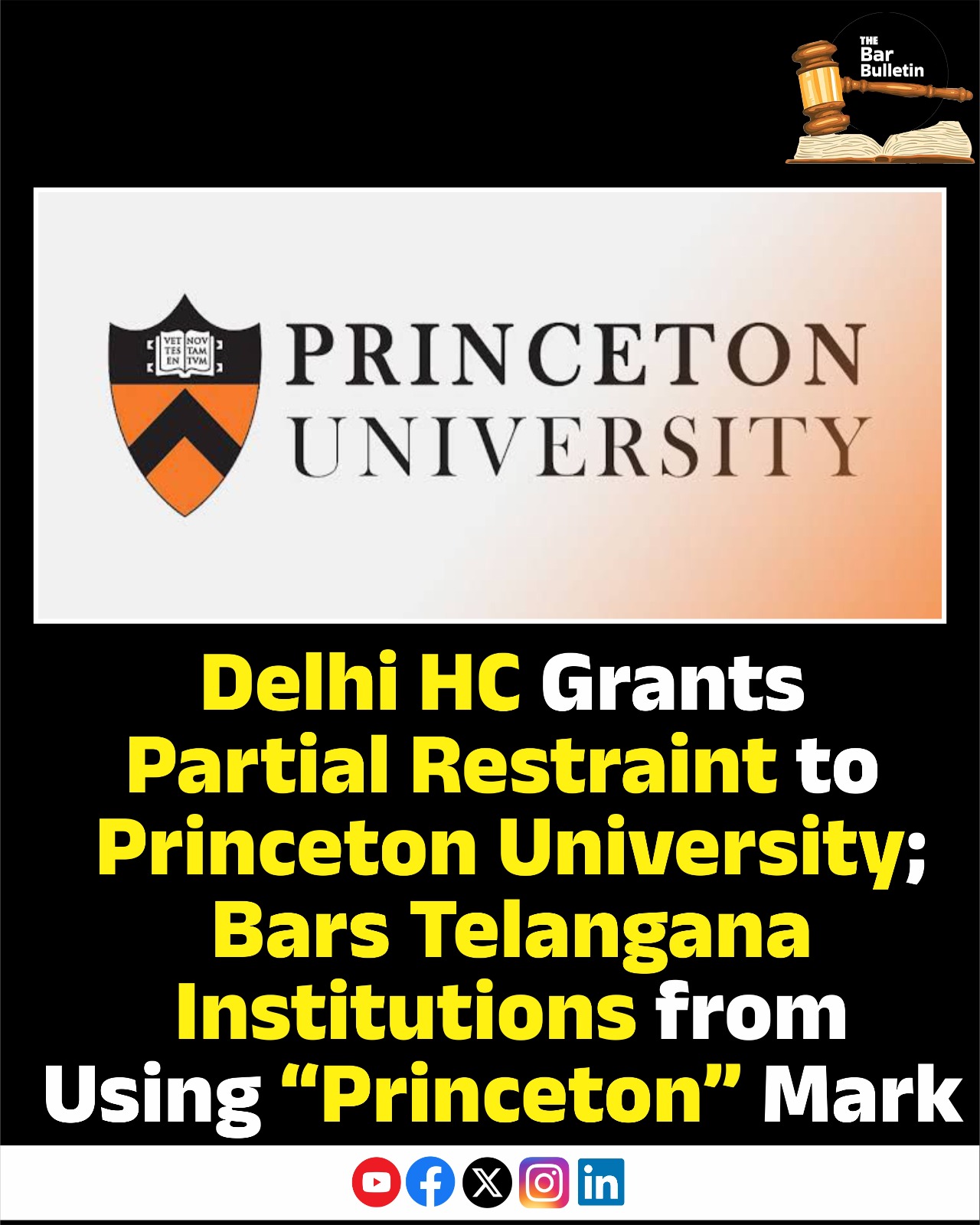The Delhi High Court on September 26, 2025 heard a trademark dispute case centered around the use of the mark “Princeton”, of the renowned appellant Princeton University. Justices Navin Chawla and Renu Bhatnagar expressed that instead of granting an interim injunction to the appellant, the respondents were directed to not open any new institution using the name “Princeton”.
The appellant University is a globally renowned educational institution established in 1746 and later designated as Princeton University in 1896, challenged the use of the identical mark “Princeton” by the respondents, who operate educational institutions in Telangana. The appellant submitted that it enjoys a longstanding reputation and goodwill in India dating back to 1911, with hundreds of Indian students attending its programs, participation in study-abroad and internship initiatives in India, and extensive international recognition. It argued that physical presence in India is not essential under the Trade Marks Act, 1999 to establish a protectable right, and that its publicity, website information, and outreach to Indian students constitute use of the mark in India under Section 2(2)(c)(ii).The Single Judge, after examining the evidence, held that the appellant failed to show actual use or continuous prior use of the mark in India and could not establish a prima facie case of passing off. It observed that the appellant’s reputation abroad and publicity did not constitute use under Section 2(2)(c)(ii) and Section 34 of the Act. The Single Judge concluded that there was no likelihood of confusion, no irreparable harm, and the balance of convenience favored the respondents, leading to dismissal of the interim injunction application.The respondents contended that their use of the mark predated the appellant’s registration in India and was unrelated to the U.S. university. They argued that “Princeton” was a geographical name, widely used, and that their logo, courses, and fee structures were distinct, making confusion unlikely. They maintained that the appellant had given up any claim based on trans-border reputation and emphasized the principle of territoriality, asserting that the appellant had no actual presence or services in India when the dispute arose. They also pointed out that the appellant had obtained registration in India through a consent letter from another entity, which demonstrated that exclusivity over the mark could not be claimed.
The Court noted that the appellant had established a prima facie case and demonstrated use of its mark “Princeton” in India, including through Indian students enrolling at the University and dissemination of information about its services. It clarified that under Section 2(2)(c)(ii) of the Trade Marks Act, 1999, protection is available even if services are not directly provided in India, and that the Single Judge had erred in interpreting Section 34 concerning prior use and potential consumer confusion. The Court relied on Ramdev Food Products (P) Ltd. v. Arvindbhai Rambhai Patel & Ors 2006 8 SCC 726, noting that while interlocutory injunctions are discretionary and appellate courts usually do not interfere, they may do so if the discretion was exercised arbitrarily or contrary to settled principles.The Court noted that although the respondents have used the mark since 1991, the word “Princeton” is a predominant, protectable part of the appellant’s mark, and differences in logos or fees do not remove the risk of confusion or dilute the appellant’s rights. While the appellant made out a prima facie case, the tests of balance of convenience and irreparable harm were not fully satisfied due to the respondents’ established operations in Telangana. Accordingly, the appeal was partially allowed with directions where the respondents were restrained from opening any new institutions using the mark “Princeton” or deceptively similar marks during the pendency of the suit, they were to maintain complete accounts of receipts from all existing institutions under the mark and file these along with an affidavit every six months. The Court noted that its observations were tentative, urged the parties to expedite the suit, disposed of all pending applications, and made no order as to costs.
Appearances:
For the Appellant- Advs.- Mr.Chander M. Lall, Sr. Adv. with Ms.Nancy Ms.Ananya Chug Roy, and Ms.Annanya Mehan
For the Respondent- Advs.- Sr. Adv. Mr.J. Sai Deepak. w/ Mr.Avinash Kumar Sharma, Mr.P. Mohith Rao and Mr.Eugene S. Philomene, Advs. for R-1 to R-7



